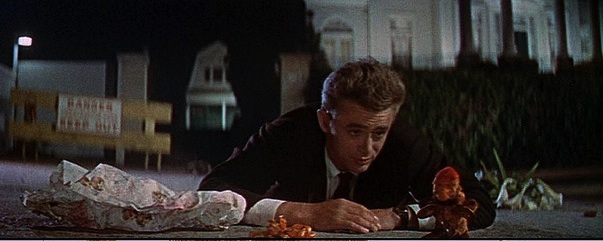Ever since the iconic character of “Jim Stark” was brought to life on the big screen, the teenager years have become synonymous with angst and rebellion. Played by James Dean in what is arguably his career-defining role, Stark was the central character in the movie “Rebel Without a Cause.”
Stark was the epitome of the disaffected youth. Looking for love, frustrated, isolated from his family, and desperate to prove himself through knife fights and acts of daring in cars, Jim Stark is portrayed as the ultimate “rebel.” It is this type of surly, misbehaving, disobedient teen that forms that basis of many adult images of teenage rebellion.
However it is a mistake to think that teenage rebellion is wrong or undesirable. It is undesirable for young people to engage in violence or risk lives being reckless on the roads. Not all teenage rebellion is violent or illegal however. In fact a degree of teen rebellion is pretty healthy I think.
Table of Contents
ToggleWhy The Need to Rebel?
As I have said numerous times before one of the key tasks for a teenager is to discover their own identity. As kids their sense of self is all tied up with their parents/care givers. In order to be an adult, teenagers need to work out who they are apart from their parents.
This process of identity formation is a common experience, but often not well understood.
As kids we assume the world is the way out parents tell us it is. Children will hold similar beliefs, values, and expectations to that of their parents. As we become teenagers our thinking starts to develop and we develop close relationships with people who are not our parents or siblings. We become aware that there are other opinions, beliefs, and options out there.
At this point teenagers are faced with some big questions. Could it be that my parents might be wrong? What if their way is not the best way? What if there is something better out there for me?
Issues of academic commitment, career choice, sexuality, religious or political beliefs, hobbies and passions, and personal expression, can all be up for grabs. By asking the questions, exploring the possibilities, and committing to a particular decision, teenagers establish their own identity.
Rebels Are Intrepid Explorers
The only way teens can explore and come to a commitment that is their own is by first rejecting or suspending their childhood identity that conformed to their parents. Once they have given themselves this permission they are free to explore the alternatives.
During this process parents will often feel that their teen is being disrespectful, wilful, unappreciative, or heading down the path of destruction and ruin. Or to put it another way – parents think their teen is being rebellious.
As a parent you might feel that because your teen is rejecting your beliefs and values, or questioning their authority, they are also rejecting you as a parent.
At this point it is important to note:
- Rejecting an opinion or belief is not the same as rejecting a person
- Exploring new thoughts and ideas is not equate to committing for life
- Difference isn’t necessarily wrong, but it might look scary
Successful Rebellion
For teenagers to become adults who are confident and content in who they are, they need to make own their commitments. To have ownership of a decision involves making a personal choice.
Restricting a teenager’s exploration or overreacting to their search does little to help them become confident adults.
When a teenager commits to an identity (belief, value, ambition, relationship) because they are told to by their parents, they fail to establish an identity that they can own (the experts call this foreclosure). Teens who choose a career, a college course, romantic partner, or a sporting pursuit to please parents are at risk of not forming a robust sense of self.
On the other end of the spectrum some teenagers never seem to take an interest or commit to any thing bigger than getting through the day and having fun while they are doing it (the experts call this diffusion). Adolescents who enter adulthood without a clear sense of direction, beliefs, or relational commitment may find it hard to settle or focus on building a meaningful and satisfying life.
Parents can help teens succeed at rebelling constructively by:
- Allowing & encouraging teens to ask questions
- Taking an interest in new pursuits or interests a teen may have
- Asking your teen about what they enjoy or want out of life
- Encouraging a climate of open discussion about ideas and values
- Being able to talk freely and clearly about your values and decisions
- Not making acceptance dependent upon their choices or performance
Please note teenagers still need to be given clear boundaries and expectations about appropriate behaviour. This is true no matter what they are or aren’t exploring. If your teenager’s rebellion results in delinquency, violence, or harm to others then they are developing a negative identity which will not help in their transition to adulthood.
Taking Risks
It can be scary for parents to watch their child wander from the family fold. But it is part of growing up – for all of us.
The truth is many teenagers will grow up and end up adopting values and principles not that different from their parents. I’m sure there is a corny saying about letting something go so it can come back to you – but I can’t think of it!
How are you responding to your teen’s display of rebellion, exploration and search for identity? Have you found ways of responding that help you or them in a particular way? Please let us know in the comments below.
Image by T Hoffarth






